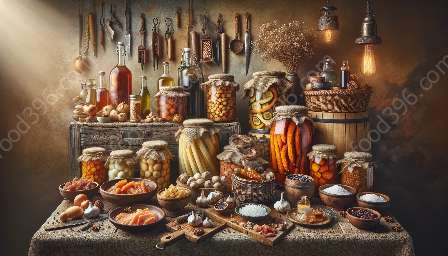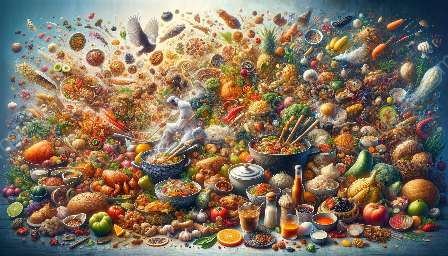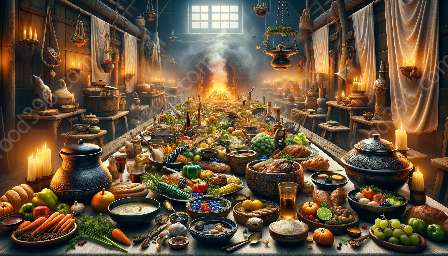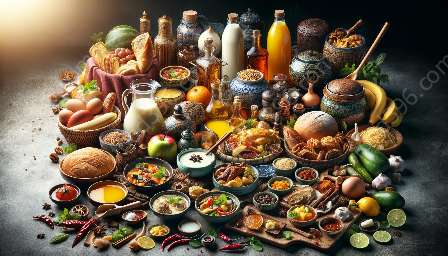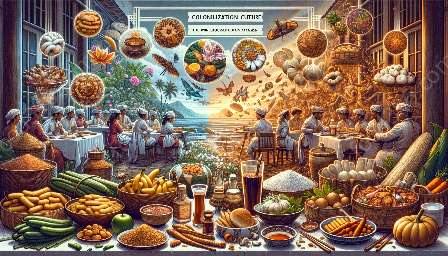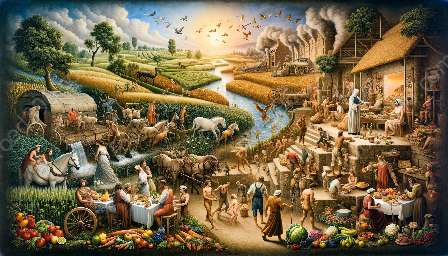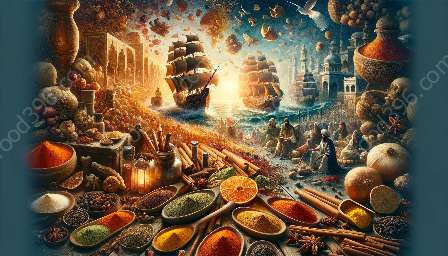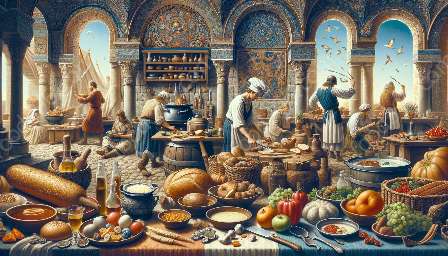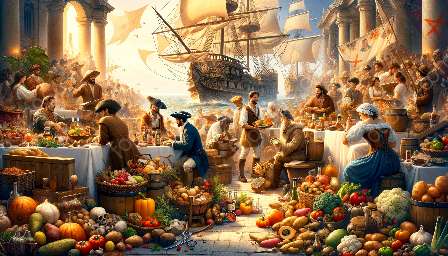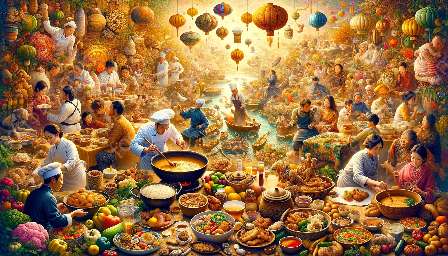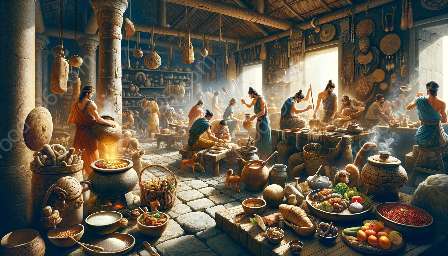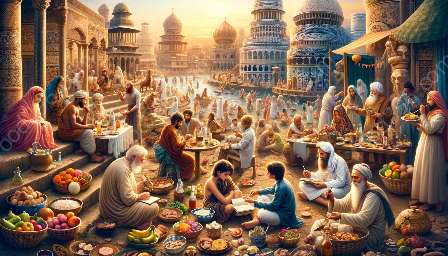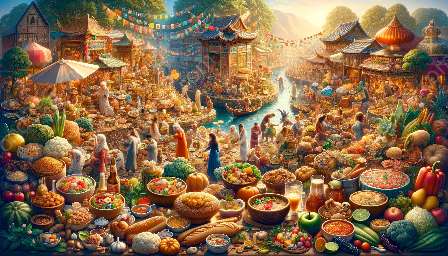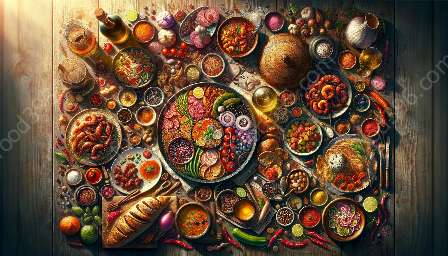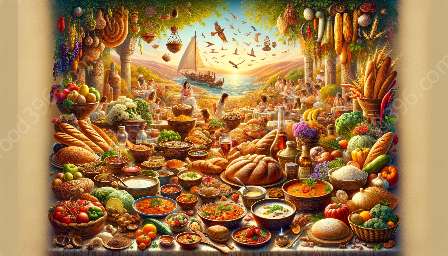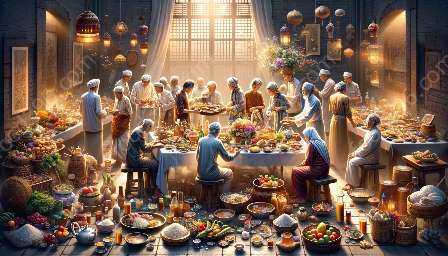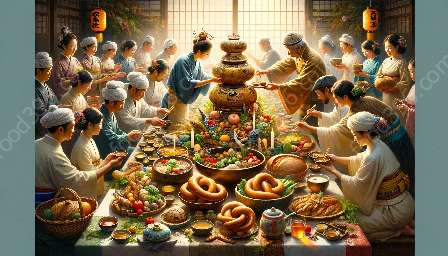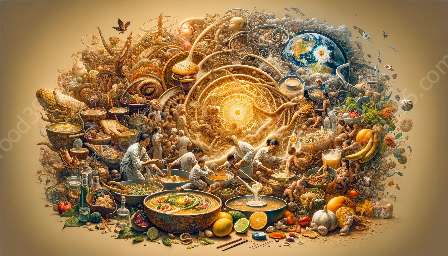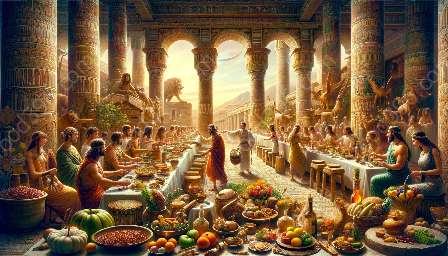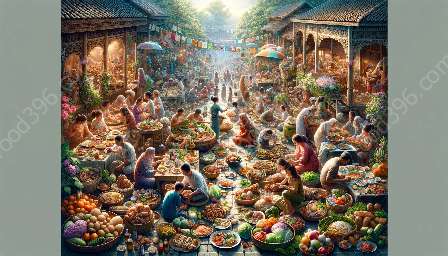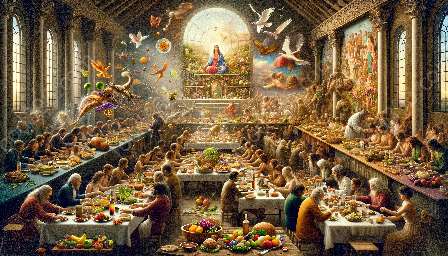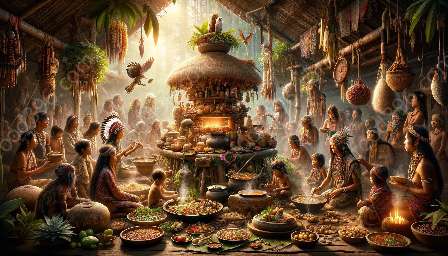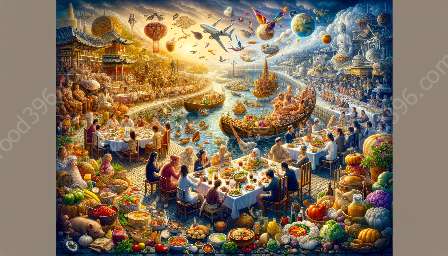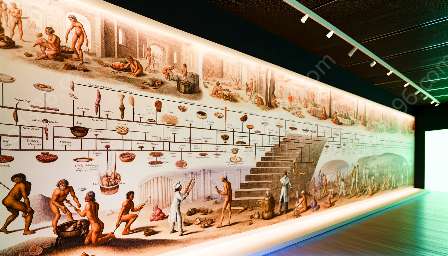Throughout history, the exploration and discovery of new foods have had a profound impact on food culture and history. This topic cluster takes you on a journey of exploration, from ancient discoveries to modern culinary breakthroughs, and explores the ways in which new foods have shaped the way we cook, eat, and enjoy food.
Ancient Explorations and Early Discoveries
The history of human civilization is intricately linked to the discovery of new foods. Early humans were foragers, constantly exploring their surroundings for edible plants and wild game. Over time, these foraging activities led to the cultivation of plants and the domestication of animals, laying the foundation for agriculture and the development of human societies. Ancient explorers and traders also played a crucial role in the spread of new foods, as they traveled far and wide, encountering and exchanging exotic ingredients and culinary traditions.
The Spice Trade and Global Flavors
The spice trade of the ancient world had a profound impact on the exploration and discovery of new foods. Spices such as cinnamon, pepper, and cloves were highly sought after and were often used as currency in trade. They not only added flavor to food but also acted as preservatives, making them valuable commodities. The search for these coveted spices led to the age of exploration, with European explorers setting out to find new trade routes and sources of spices. Along the way, they encountered and brought back new foods such as tomatoes, potatoes, and chocolate, forever changing the culinary landscape of the world.
Colonialism and Culinary Exchange
The era of colonialism also played a significant role in the discovery and exchange of new foods. European colonies in the Americas, Africa, and Asia became hubs of culinary exchange, as colonizers encountered and adopted the foods and cooking techniques of the indigenous populations. This exchange led to the global spread of staple foods such as maize, potatoes, and chili peppers, as well as the introduction of crops like coffee, tea, and sugar to new regions.
Modern Exploration and Culinary Innovation
In the modern era, exploration and discovery of new foods continue to shape our food culture and history. Advances in transportation and technology have made it possible for a greater variety of foods to be available year-round, enabling people to enjoy fruits, vegetables, and spices from all corners of the globe. Additionally, the rise of food tourism has led to a greater interest in exploring traditional and regional cuisines, further expanding our culinary horizons.
Culinary Trends and Fusion Cuisine
The exploration of new foods has also given rise to culinary trends and fusion cuisine. Chefs and food enthusiasts constantly seek out new and exciting ingredients, often combining traditional and exotic flavors to create innovative dishes. This blending of culinary traditions has led to the emergence of fusion cuisine, where the boundaries of traditional gastronomy are pushed, resulting in truly unique and global flavors.
The Impact of New Foods on Food Culture
The discovery of new foods has had a lasting impact on food culture and history. It has not only expanded our palates but has also led to the adaptation of new cooking techniques, the creation of new dishes, and the enrichment of culinary traditions. The fusion of different cuisines and the availability of diverse ingredients have made food an integral part of cultural exchange and celebration.
Conclusion
The exploration and discovery of new foods throughout history have been a journey of immense cultural significance. From ancient foraging to the global exchange of flavors, the discovery of new foods has shaped the way we eat, cook, and appreciate food. It continues to inspire culinary innovation, foster cultural exchange, and enrich our food experience, making the exploration of new foods an enduring and fascinating aspect of our food culture and history.



